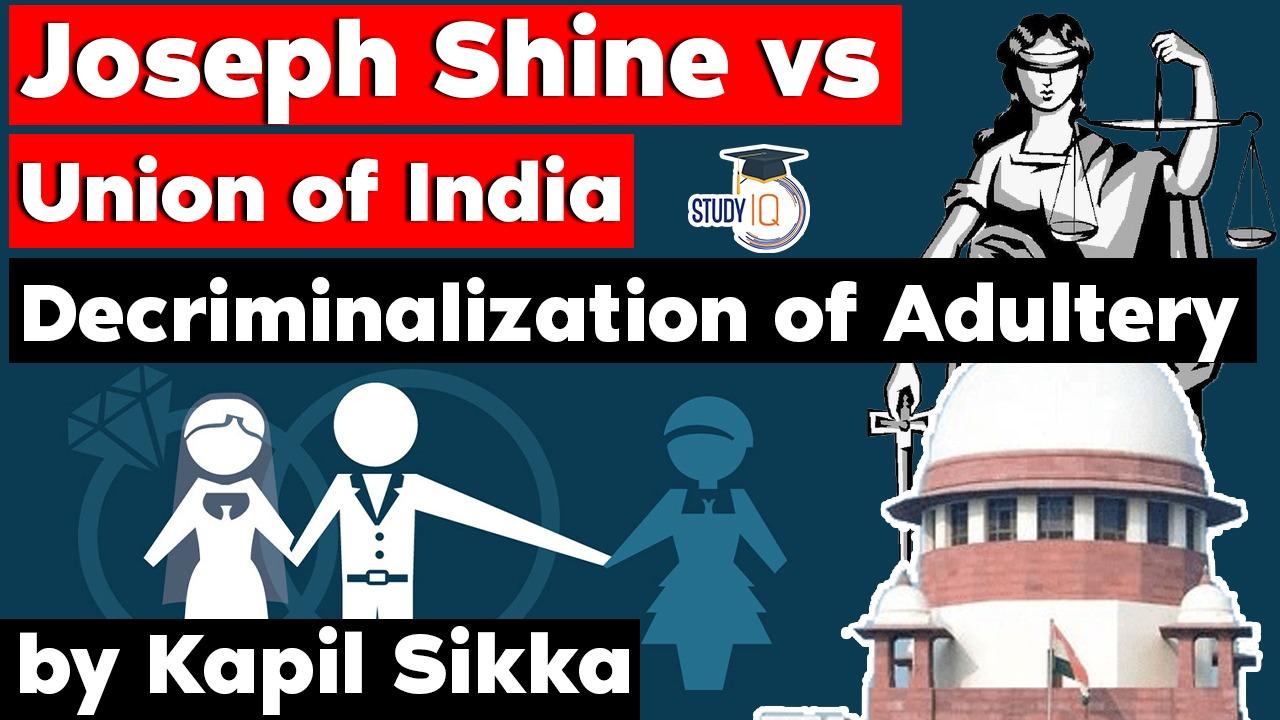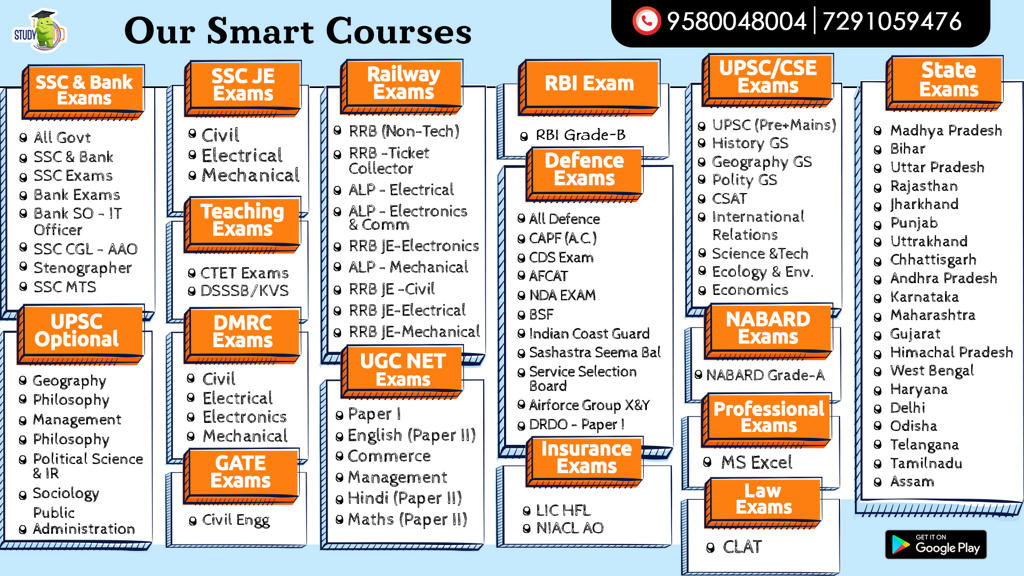Table of Contents


- Mere adultery can’t be a crime unless it attracts the scope of Section 306 (abetment to suicide) of the IPC
- Justice Chandrachud has now overturned his father Justice YV Chandrachud’s 1985 ruling that held the adultery law to be constitutionally valid.
Background of Adultery
- Based on the notion of patriarchy and male chauvinism
- No right to a woman in case her husband commits adultery
- Sinful since ancient times
- Was kept to protect the institution of Marriage
Facts of Case
- Joseph Shine filed a writ petition under A-32 challenging the constitutionality of Section 497 of IPC being violative of Article 14, 15 and 21.
- He claimed the provision for adultery is arbitrary and discriminatory on the basis of gender.
- It maligns the dignity of a woman.
- The constitutional bench of 5 judges was set up to hear the petition.
Earlier Judgements on Adultery
- Yusuf Abdul Aziz vs. State of Bombay (1954)
- Constitutionality of Section 497 was challenged on the grounds that it violates Article 14 and Article 15
- The 3 judge bench upheld the validity of Section 497
- It is a special provision implemented for women under Article 15(3).
Sowmithri Vishnu v. Union of India & Anr. (1985)
- Validity of Section 497 of IPC was challenged
- Provision does not provide the right to a woman to prosecute the woman with whom her husband has committed adultery and hence is discriminatory.
- The 3 judge bench in this case also upheld the validity by stating that extending the ambit of offence should be done by the legislature and not by courts.
- The offence of breaking a family is no smaller than breaking a house, so the punishment is justified.
- The court accepted that only men can commit such an offence.
Revathi vs. Union of India (1988)
- court upheld the constitutional validity of Section 497
- this provision disables both wife and husband from punishing each other for adultery hence not discriminatory.
- It only punishes an outsider who tries to destroy the sanctity of marriage.
- And thus it is reverse discrimination in ‘favour’ of her rather than ‘against’ her.
Arguments of Joseph Shine Case
- Section 497 is violative of Equality given in constitution
- Places husband and wife at unequal pedestal in marriage
- It is only to protect marriage institutions
- Violative of Right to Privacy under A-21
Respondents
- This section protects the Family
- The discrimination by the provision is saved by Article 15(3), which provides state right to make special laws for women and children.
The Judgement
27th September 2018, a five-judge Bench unanimously struck down Section 497
- Justice D Y Chandrachud says Section 497 destroys and deprives women of dignity
- Justice R F Nariman terms Section 497 dealing with adultery as archaic law
- We declare Sect 497 IPC and Sec 198 CrPC dealing with prosecution of offences against marriage as unconstitutional: CJI & Justice Khanwilkar
- Nariman concurs with CJI, Justice Khanwilkar and says Section 497 is violative of right to equality and right to equal opportunity to women
- Adultery might not be cause of unhappy marriage, it could be result of an unhappy marriage: CJI
- Law deprives married women the agency of consent: Justice D Y Chandrachud
- A woman loses her voice, autonomy after entering marriage and manifest arbitrariness is writ large in Section 497: Justice Chandrachud
- Section 497 offends sexual freedom of women: Justice Chandrachud
- It’s time to say the husband is not the master of the woman: Misra
- Section 497 manifestly arbitrary the way it deals with women: Misra
- Adultery can be grounds for divorce, but not a criminal offence: Misra
- A woman loses her voice, autonomy after entering marriage: DY Chandrachud
- Autonomy intrinsic in dignified human existence: Chandrachud
- Manifest arbitrariness is writ large in Section 497: Chandrachud
- No justification for the continuation of Section 497: Indu Malhotra
- Section 497 a clear violation of fundamental rights granted in Constitution: Malhotra


- As per Article 141 of the Constitution of India, the law declared by the Hon’ble Supreme Court is binding on all the courts within the territory of India and the law laid down by the Hon’ble Supreme Court applies to all pending proceedings.
- Upon perusal of the aforesaid decision of the Hon’ble Supreme Court, there is no indication that the same would apply prospectively and there is nothing like any prospective operation of law laid down by the Hon’ble Supreme Court
Download | Free PDF

























 WhatsApp
WhatsApp